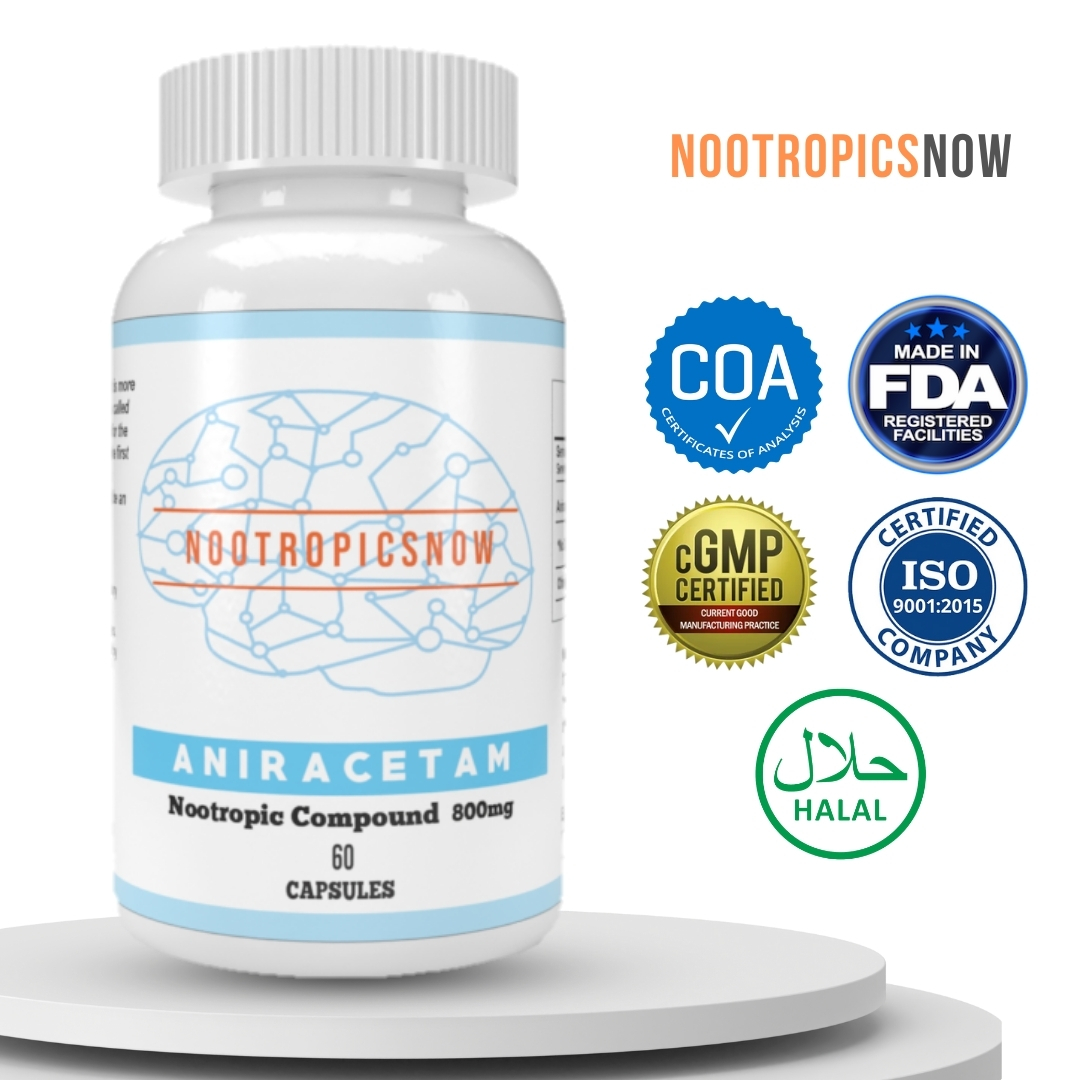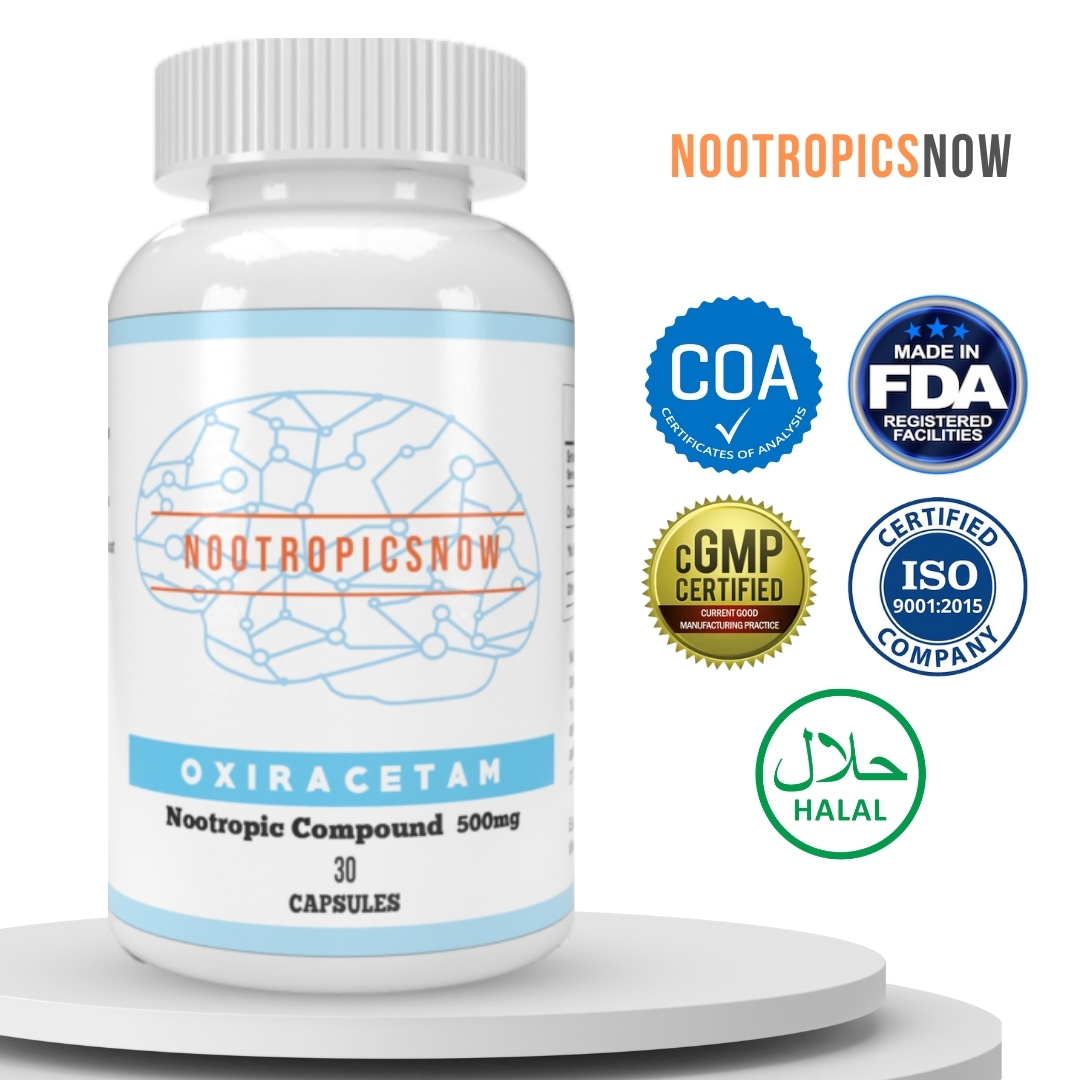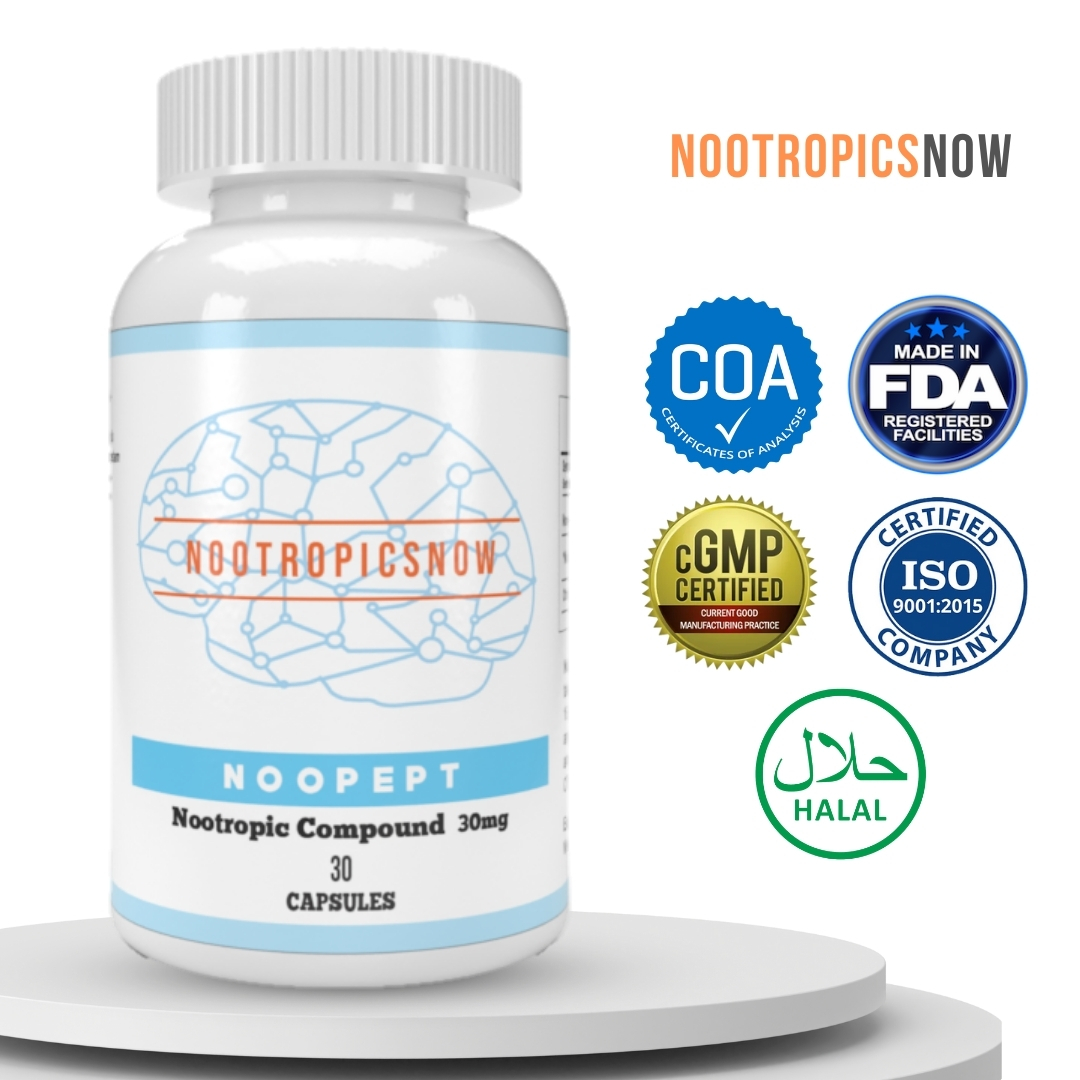Nootropics: Boost Brainpower & Focus

Nootropics: A Comprehensive Guide to Cognitive Enhancement
Nootropics, often dubbed “smart drugs,” have gained substantial traction. These substances are designed to enhance cognitive functions. This includes memory, focus, creativity, and motivation. Whether natural or synthetic, nootropics are used by students, professionals, and those seeking to optimize their mental performance. As a result, the market has exploded with a wide variety of options, each with its own set of benefits and considerations. Navigating this diverse landscape requires a comprehensive understanding of what nootropics are, how they work, and what potential benefits and risks are involved.
Defining Nootropics: More Than Just “Smart Drugs”
The term “nootropic” was coined in 1972 by Romanian psychologist and chemist Corneliu Giurgea. He defined nootropics as substances that enhance learning and memory, protect the brain from injury, and possess minimal side effects. Giurgea also stipulated that nootropics should improve the brain’s resistance to disruptive conditions. It’s important to note that not all cognitive enhancers meet this stringent definition. Many substances marketed as nootropics may have limited research supporting their efficacy or may carry more significant side effect profiles.
Therefore, a critical approach is required when evaluating nootropic supplements. Beyond the basic definition, modern understanding of nootropics also incorporates their impact on various cognitive domains. This can include executive function, attention span, processing speed, and even mood regulation.
The Mechanisms of Action: How Nootropics Work
Nootropics exert their effects through various mechanisms within the brain. While the specific mechanisms can vary depending on the particular substance, some common pathways include:
Natural Nootropics: Harnessing the Power of Nature
Natural nootropics are derived from plants, herbs, and other natural sources. They often have a long history of use in traditional medicine. Some of the most popular natural nootropics include:
Synthetic Nootropics: Precision-Engineered Cognitive Enhancement
Synthetic nootropics are created in a laboratory to mimic or enhance the effects of natural substances. They often have a more potent and targeted effect on specific cognitive functions. Some popular synthetic nootropics include:
Stacking Nootropics: Synergistic Cognitive Enhancement
Nootropic stacking involves combining two or more nootropics to achieve synergistic cognitive benefits. The idea is that different nootropics may work through complementary mechanisms, resulting in a greater overall effect than using any single nootropic alone. Some popular nootropic stacks include:
The Benefits of Nootropics: What Can You Expect?
The potential benefits of nootropics can vary depending on the individual and the specific substances used. However, some common benefits include:
Potential Risks and Side Effects: Proceed with Caution
While nootropics can offer significant cognitive benefits, it is important to be aware of the potential risks and side effects. Some common side effects include:
Responsible Use of Nootropics: Prioritizing Safety and Efficacy
To minimize the risks and maximize the benefits of nootropics, it is important to follow these guidelines for responsible use:
The Future of Nootropics: Emerging Trends and Research
The field of nootropics is constantly evolving, with new research and products emerging all the time. Some of the emerging trends in nootropics include:
Conclusion: Nootropics as Tools for Cognitive Enhancement
Nootropics offer a promising avenue for cognitive enhancement. However, they should be approached with caution and used responsibly. By understanding the mechanisms of action, potential benefits, and risks involved, individuals can make informed decisions about whether or not to incorporate nootropics into their cognitive enhancement strategy. When used appropriately, nootropics can be valuable tools for improving memory, focus, creativity, and overall cognitive function, ultimately leading to a more productive and fulfilling life. It is important to always prioritize safety and consult with a healthcare professional before starting any new nootropic regimen.
Exploring Specific Nootropics: A Deeper Dive
Beyond Modafinil, the world of nootropics encompasses a vast array of substances, each with unique mechanisms of action and potential benefits. It’s crucial to understand these differences to make informed choices aligned with your specific cognitive goals.
Racetams: The Classic Nootropics
Racetams represent a class of synthetic nootropics derived from piracetam, the first nootropic ever synthesized. They are known for their ability to enhance cognitive functions, including memory, learning, and attention.
Piracetam
As the original racetam, piracetam remains a popular choice for its affordability and relatively mild effects. It is believed to enhance communication between brain hemispheres and improve overall cognitive flexibility. However, individual responses to piracetam can vary significantly.

View Product
Aniracetam
Aniracetam is considered more potent than piracetam and is often preferred for its mood-enhancing and anxiolytic effects. It is believed to modulate AMPA receptors and influence neurotransmitters like acetylcholine and dopamine.

View Product
Oxiracetam
Oxiracetam is known for its stimulating properties and its ability to improve focus and concentration. It is structurally similar to piracetam but is considered more potent in terms of cognitive enhancement.

View Product
Pramiracetam
Pramiracetam is one of the most potent racetams and is known for its ability to significantly enhance memory and learning. It is believed to increase high-affinity choline uptake and modulate glutamate receptors.
Phenylpiracetam
Phenylpiracetam is a derivative of piracetam with a phenyl group added, which enhances its ability to cross the blood-brain barrier. It is known for its stimulating and cognitive-enhancing effects and is often used to combat fatigue and improve mental performance.
Table: Comparison of Racetams
| Racetam | Key Benefits | Potential Side Effects | Dosage |
|---|---|---|---|
| — | — | — | — |
| Piracetam | Improved memory, cognitive flexibility | Headaches, anxiety | 1200-4800mg daily |
| Aniracetam | Enhanced mood, reduced anxiety | Anxiety, insomnia | 750-1500mg daily |
| Oxiracetam | Increased focus, concentration | Headaches, stimulation | 600-2400mg daily |
| Pramiracetam | Significantly enhanced memory | Headaches, gastrointestinal issues | 400-1200mg daily |
| Phenylpiracetam | Stimulation, fatigue reduction | Insomnia, anxiety | 100-600mg daily |
Natural Nootropics: Harnessing the Power of Nature
For those seeking cognitive enhancement with fewer potential side effects, natural nootropics offer a compelling alternative. These substances are derived from plants, herbs, and other natural sources and have been used for centuries to promote cognitive function and overall well-being.
Bacopa Monnieri
Bacopa Monnieri is an Ayurvedic herb known for its memory-enhancing and anti-anxiety properties. It is believed to enhance the synthesis of brain-derived neurotrophic factor (BDNF) and promote neurogenesis.

View Product
Lion’s Mane Mushroom
Lion’s Mane Mushroom is a medicinal mushroom known for its neuroprotective and cognitive-enhancing effects. It contains compounds called hericenones and erinacines, which stimulate the growth of nerve cells in the brain.

View Product
Rhodiola Rosea
Rhodiola Rosea is an adaptogenic herb known for its ability to reduce stress and enhance mental performance. It is believed to modulate neurotransmitters like serotonin and dopamine and improve energy levels.

View Product
Ginkgo Biloba
Ginkgo Biloba is a herbal extract known for its ability to improve blood flow to the brain and enhance cognitive function. It is believed to have antioxidant and anti-inflammatory properties that protect brain cells from damage.

View Product
L-Theanine
L-Theanine is an amino acid found in green tea that promotes relaxation and focus. It is often combined with caffeine to enhance cognitive performance without the jitters and anxiety associated with caffeine alone.

View Product
Table: Comparison of Natural Nootropics
| Natural Nootropic | Key Benefits | Potential Side Effects | Dosage |
|---|---|---|---|
| — | — | — | — |
| Bacopa Monnieri | Improved memory, reduced anxiety | Gastrointestinal issues, fatigue | 300-600mg daily |
| Lion’s Mane Mushroom | Neuroprotection, cognitive enhancement | Mild gastrointestinal issues | 500-3000mg daily |
| Rhodiola Rosea | Stress reduction, enhanced mental performance | Insomnia, anxiety | 100-600mg daily |
| Ginkgo Biloba | Improved blood flow, cognitive function | Headaches, gastrointestinal issues | 120-240mg daily |
| L-Theanine | Relaxation, focus | Mild drowsiness | 100-400mg daily |
Other Notable Nootropics
Beyond racetams and natural nootropics, several other substances have gained popularity for their cognitive-enhancing properties.
Choline Sources (Alpha GPC, CDP-Choline)
Choline is an essential nutrient that plays a crucial role in brain function. Alpha GPC and CDP-Choline are choline sources that are readily converted into acetylcholine, a neurotransmitter involved in memory, learning, and attention.

View Product
Noopept
Noopept is a peptide-derived nootropic that is structurally similar to piracetam but is considered to be much more potent. It is believed to enhance cognitive functions and improve memory.

View Product
Creatine
Creatine is a naturally occurring compound that is primarily known for its role in muscle energy production. However, it has also been shown to have cognitive-enhancing effects, particularly in tasks involving short-term memory and reasoning.
Melatonin
Melatonin is a naturally produced hormone associated with sleep regulation. Studies suggest that use of melatonin can improve sleep for shift-workers.
Table: Comparison of Other Notable Nootropics
| Nootropic | Key Benefits | Potential Side Effects | Dosage |
|---|---|---|---|
| — | — | — | — |
| Alpha GPC | Improved memory, enhanced acetylcholine levels | Gastrointestinal issues, headaches | 300-600mg daily |
| CDP-Choline | Improved memory, enhanced cognitive function | Gastrointestinal issues, headaches | 250-500mg daily |
| Noopept | Enhanced cognitive function, improved memory | Headaches, anxiety | 10-30mg daily |
| Creatine | Improved short-term memory, enhanced reasoning | Gastrointestinal issues, water retention | 3-5g daily |
| Melatonin | Improved sleep | Headache, Dizziness | 3-5mg daily |
Cautions and Considerations When Choosing Nootropics
As we explore the nootropic landscape, it’s crucial to acknowledge that their use is not without potential risks and considerations.
Research and Understand the Potential Side Effects
Before incorporating any nootropic into your regimen, conduct thorough research on its potential side effects and interactions with other medications or supplements you may be taking. Side effects can vary significantly depending on the substance and individual sensitivities.
Start With Low Dosages and Titrate Gradually
Begin with the lowest recommended dosage and gradually increase it as needed, paying close attention to your body’s response. This approach allows you to identify any adverse effects early on and minimize potential risks.
Consult With a Healthcare Professional
It is always recommended to consult with a healthcare professional before using nootropics, especially if you have any underlying health conditions or are taking medications. A healthcare professional can help you determine if nootropics are appropriate for you and provide guidance on safe and effective usage.
Be Aware of Potential Interactions
Nootropics can interact with other medications or supplements, potentially altering their effects or increasing the risk of side effects. Be sure to inform your healthcare professional about all the substances you are taking to avoid potential interactions.
Monitor Your Cognitive Function and Overall Well-being
Keep a journal or log to track your cognitive function and overall well-being while using nootropics. This will help you identify any positive or negative effects and make adjustments to your regimen as needed.
Cycle Nootropics to Prevent Tolerance
Prolonged use of nootropics can lead to tolerance, where the body becomes less responsive to their effects. To prevent tolerance, consider cycling nootropics by taking breaks from their use or alternating between different substances.
Practice Healthy Lifestyle Habits
Nootropics are not a substitute for healthy lifestyle habits. To maximize their cognitive benefits, combine their use with a balanced diet, regular exercise, adequate sleep, and stress management techniques.
The Future of Nootropics
The field of nootropics is constantly evolving, with new substances and research emerging regularly. As our understanding of the brain and cognition deepens, we can expect to see even more sophisticated and targeted nootropics developed in the future.
Personalized Nootropics
One promising area of research is personalized nootropics, where substances are tailored to an individual’s specific cognitive profile and needs. This approach holds the potential to maximize the benefits of nootropics while minimizing the risk of side effects.
Nutrigenomics and Nootropics
Nutrigenomics, the study of how nutrients interact with genes, may also play a role in the future of nootropics. By understanding how different substances affect gene expression, we can develop nootropics that are more effective and targeted.
Neurofeedback and Nootropics
Neurofeedback, a technique that allows individuals to monitor and regulate their brain activity, may be combined with nootropics to enhance their cognitive effects. This approach could allow individuals to fine-tune their brain activity and optimize their cognitive performance.
As the field of nootropics continues to advance, it is essential to approach their use with caution and prioritize safety. By staying informed about the latest research and consulting with healthcare professionals, individuals can harness the potential benefits of nootropics while minimizing the risks.









